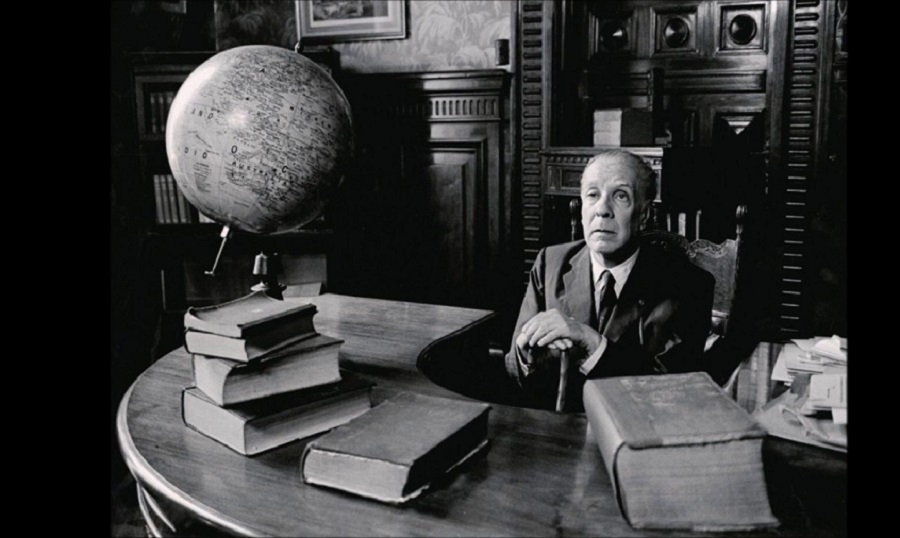RIO DE JANEIRO, BRAZIL – A short-story writer, poet and all-round intellectual, his works are viewed with fascination, but also with a certain respect and fear, a “prejudice” that the first festival dedicated to his work and figure, the ‘Borges Festival,’ aims to dispel.
This literary tribute, to be held online between August 23 and 28, coinciding with the 122nd anniversary of the writer’s birth on Tuesday, will leave academia in the background to attract “new readers” according to one of its organizers, Argentine author Vivian Dragna.

“We want to curb the prejudice that he is difficult to read, that he is baroque or that he makes such complicated quotations that we can’t follow them,” says the promoter of an event with over 15,000 people registered worldwide.
A FESTIVAL FOR THE GENERAL PUBLIC
Every year in Argentina there are countless conferences, seminars or courses on Borges, but Vivian Dragna noticed that there was no event “to celebrate him” with activities for all kinds of readers.
As a result, three years ago the Argentine author began organizing a literary festival that, given the global health situation, was forced to adopt a virtual format for its first edition, with the help of editor Marisol Alonso, the event’s co-organizer.
In their first conversations about the ‘spirit’ of the festival, both agreed that it should be a “gateway” to start reading Borges, fleeing from other approaches less suitable for the general public.
“What I proposed to Vivian was not to make a kind of ‘Borges Conference’ or something with an academic profile, because I just think that’s what eventually creates some distance from Borges,” Alonso said.
CONFERENCES AND WORKSHOPS
According to Dragna, the festival pursues two key goals: on the one hand, for more experienced readers of Borges to broaden their knowledge even further and, on the other hand, for those who have never read him to have a sort of guide to understand his works from the beginning.
Thus, the event kicks off this Monday with three very different conferences. One of them, will examine Borges’ influence on Christopher Nolan’s films, while another will provide “keys” to start reading the author of ‘The Aleph’.
“All participants are people who have been giving talks or have written books on Borges,” says Dragna about a festival that will feature 13 speakers with diverse profiles, such as author Sylvia Iparraguirre, American expert on Borges Daniel Balderston or philosopher Darío Sztajnszrajber.
There will also be workshops for an in-depth study of some of his best-known stories, such as ‘Theme of the Traitor and the Hero’ or ‘Death and the Compass,’ to be analyzed by literature professor Pablo Gaiano.
“In ‘Death and the Compass’ Borges takes the police genre and inverts it, changing who the victim and who the trapped one is. Now we see it in many series, but at that time (1942) it was completely innovative,” Gaiano explains.
For Marcos Liyo, social communicator and responsible for the workshops on ‘Funes the Memorious’ and ‘Biography of Tadeo Isidoro Cruz,’ one of Borges’ most distinctive features is his “universal” character, which permeates all his stories.
“‘Funes the Memorious’ is a story that can be read in Buenos Aires or in St. Petersburg and it doesn’t lose its grace or charm, because of its narrative structure and the fantastic character of Funes,” Liyo says.
BORGES’ LEGACY
Now, over 30 years after his death, why continue reading Borges? Precisely because of the “incomprehensibility” of his literary work, admired worldwide and which, in the word of Vivian Dragna, is “infinite”.
“Borges is incomprehensible, infinite, eternal. There will be scholars studying Borges, I think for many centuries to come, he will become the classic of classics,” she says.
In fact, all involved in the festival agree on the same point: Jorge Luis Borges is the “central figure” of Argentine literature without any kind of opposition, although the reading of his works has declined in recent times.
“He is still a very important author, very well known, but little read by the general public (…). The festival’s challenge is for him to regain readers, beyond the prestigious place he has always had and will always have,” says editor Marisol Alonso.

